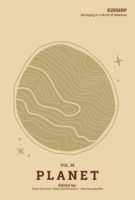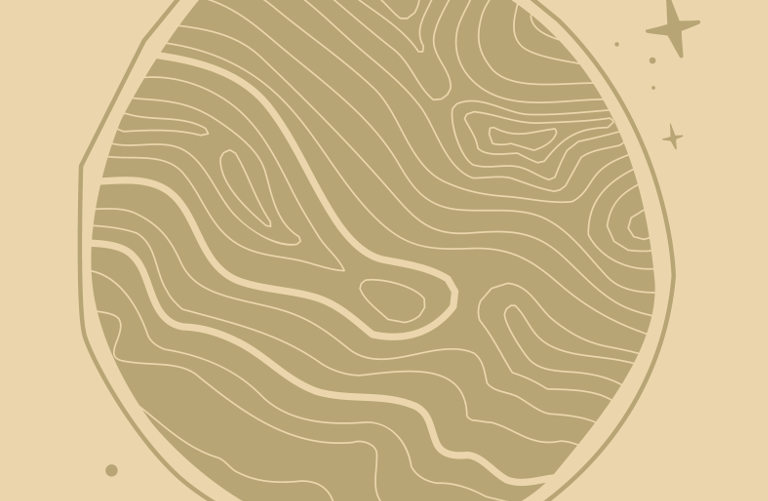 Ed. note: This piece is excerpted from Robin Wall Kimmerer’s chapter A Family Reunion at the End of the World, from Kinship: Belonging in a World of Relations, Vol. 1 – Planet, published by the Center for Humans and Nature, and is reproduced here with permission. You can find out more about the series here.
Ed. note: This piece is excerpted from Robin Wall Kimmerer’s chapter A Family Reunion at the End of the World, from Kinship: Belonging in a World of Relations, Vol. 1 – Planet, published by the Center for Humans and Nature, and is reproduced here with permission. You can find out more about the series here.
It’s a happy day, but inevitably the reflection on days gone by unearths pain as well as happiness. The absence of beloved relations makes empty places at the table. The chair for Chestnut is empty. The nametag for Passenger Pigeon lies unclaimed on the table. Memorial photos of the Elms and the Ivory-Bills gaze out with a look that demands accountability. They did not disappear on their own.
When the last piece of pie is gone and the air turns blue and gold with evening, the Hermit Thrush tinkles a reminder in his ear, and Nanabozho stands again at the head of the table and clears his throat. He’s been working on his speech to give it the gravitas the occasion deserves and to help people forget last year’s unfortunate flatulence.
“My relatives,” he says. “May I have a few words for this auspicious gathering. It is joyful to be together and for the first time in centuries, to be joined again by the Humans. We are glad that ‘you who forget’ did not forget to come”—scolding comes naturally to one who has been scolded—“I’m glad you’ve enjoyed each other’s company and we hope it will continue.”
“To recognize kinship is the first step, to celebrate it as we do here today is better yet, but real kinship comes when you live it. When you all started speaking English, you thought kinship was a noun, but it’s a verb, it’s not a thing, it’s what you do,” he said.
Cousin Redwood looks pointedly around the crowd.
His voice deepens as he says,
“I’m not much for speechmaking, but in the beginning we people—and I’m half human, so I know—we were a better species. But recently you seemed to forget that the laws of nature even apply to you. Not all of us will survive the dismembering you brought upon us, maybe not even you. So, at the request of the elder species, we’ve invited you here to ask you to remember. To remember our Original Instructions, to be a member of the more-than-human family again.”
He sweeps his arm across the tables, covered with dirty dishes since the feasting is over. He continues:
“Being a relative is more than shared blood from a common past. Real kinship arises when we realize that we have a common future, that our fates are linked.
What happens to us, happens to you. You have had a feast from the earth, now what about the dishes? Are you the sort of species that comes to a feast empty-handed and leaves the dirty dishes behind? And let’s tell the truth here. You all think you’re pretty special.
Exceptional, even. You do have some wonderful gifts, it’s true, but the thing you seem to have done exceptionally well is make a mess. You’re at the top of the pyramid all right, only it’s a pile of trash.”
He’s really getting wound up now, perhaps that elderberry juice loosened something in him. Nokomis had asked him not to, but he forgot. She glances at him in that way that grandmas do.
“Your relatives have invited you here for a reckoning,” he concludes. “I’ll sit down and let the others have a say.”
White Pine wants the next word:
“What made you take them all? Can you not permit beings greater than yourselves to live?”
Muskrat stands on his chair to be heard.
“Have you forgotten,” he asks, “what my ancestors did for yours? Is this how you repay us?”
Sphagnum drips all over the table while decrying the removal of her people. It looks like she is crying.
There is a long line of people waiting to speak, the Bees and the Lilies and Bear people, but this was not the way Nokomis and the aunties had planned it. They know that shame can push relatives further away and make them act even worse. Like those deadbeat dads, who out of self-preservation don’t come to the birthday party where they might endure rebuke. But it’s not about pointing out faults; it’s about family.
“Stop,” she says. “It’s time for the women to speak. We did not invite you Humans here to scold you. You already know what you did. We asked you to come back to us. You forgot who we are, because you forgot who you are. You were meant to be planters not plunderers. We know you are the newest among us, the one who is still trying to learn how to be a good relative. You listened to those loud talkers instead of to the birds. They told you your only family was Human. They said you were alone. They said we were not relatives but ‘natural resources.’ They even made you forget that . . .”
Her voice catches in her throat and she can’t go on. Hemlock puts a soft bough around her shoulders and Stream brings her a drink.
The others take over.
The Wood Thrushes trill,
“Why do you suppose we sing you to sleep and the Robins wake you up with music?”
The Berries declare,
“No matter what you do, we keep feeding you.”
The Three Sisters stand up together.
“We’ve never let you go hungry,” they proclaim.
“I built your houses,” says Fir.
“And kept you warm,” adds Oak.
“Gave our lives to fill your stew pot,” notes Deer.
“Dripped sap into your mouth,” offers Maple.
“And healed you,” whisper the Medicine Plants, “just as we do for each other.”
The flowers just stood there, the stars shone, and all the trees breathed in and breathed out.
Nokomis recovers herself, wiping her eyes. She continues,
“The most important thing you forgot, all this time we have fed you, provided every single thing that you need, sung you awake in the morning, and sung you to sleep at night, tried to teach you. We have loved you in every way we know how and you didn’t even know.”
The only sound is sniffling, and the wind in the trees.
She waits patiently. Then, after casting her gaze upon all those who have gathered, she speaks:
“We all carry the same spark of life, the same ‘wanting to be,’ and our instructions were to care for it, wherever it glows. Yes, you forgot your responsibilities. Look at Nanabozho. He forgets, too. He gets all caught up in trouble with his greediness and scheming. He’s half human, but nonetheless, he always goes about with love for each of us. He never forgets that.”
Nanabozho stands up again. Meanwhile, everyone shifts uneasily in their seats, which are growing harder by the minute. He looks at his notes, so he won’t forget.
“There’s that old adage that family is the one who must take you in, when no one else will, despite your faults. Family is like that. Genetics is part of kinship, along with ties of emotion and spirit, but it’s what we do that matters. It’s mutual responsibility that makes good relatives. You could also call it love.”
He turns to the Humans and makes a final plea.
“We’re asking you to come home. We need you to be good relatives again. Come down off your pyramid and into the circle.”
Right on cue, the young ones start up a round dance to the accompaniment of the drumming Partridges and the warbling Vireos. The Humans join in, with clumsy steps at first, but they learn from the others in the circle.
Have you ever been at a reunion or a big party, when the plates are empty and conversations wind down and you think about leaving? Then you hear peals of laughter, the clatter of dishes, and contagious giggles from behind the kitchen door. That’s where the real party is, as the aunties portion out leftovers to be taken home, scrape the dishes, and laugh with their hands in hot soapy water, snapping damp towels as they dry pots and pans. It’s one thing to be invited to the party. Then you have a choice: to remain a polite guest in a distant armchair or to walk through that kitchen door and roll up your sleeves, to be washed in love and laughter.
Kinfolk are made by reciprocity. No one needs to be lonely. They’re doing dishes in Mother Earth’s kitchen. Nokomis holds open the door and waves you in.
This is how Re-membering begins.





